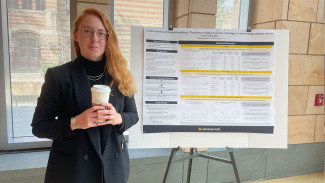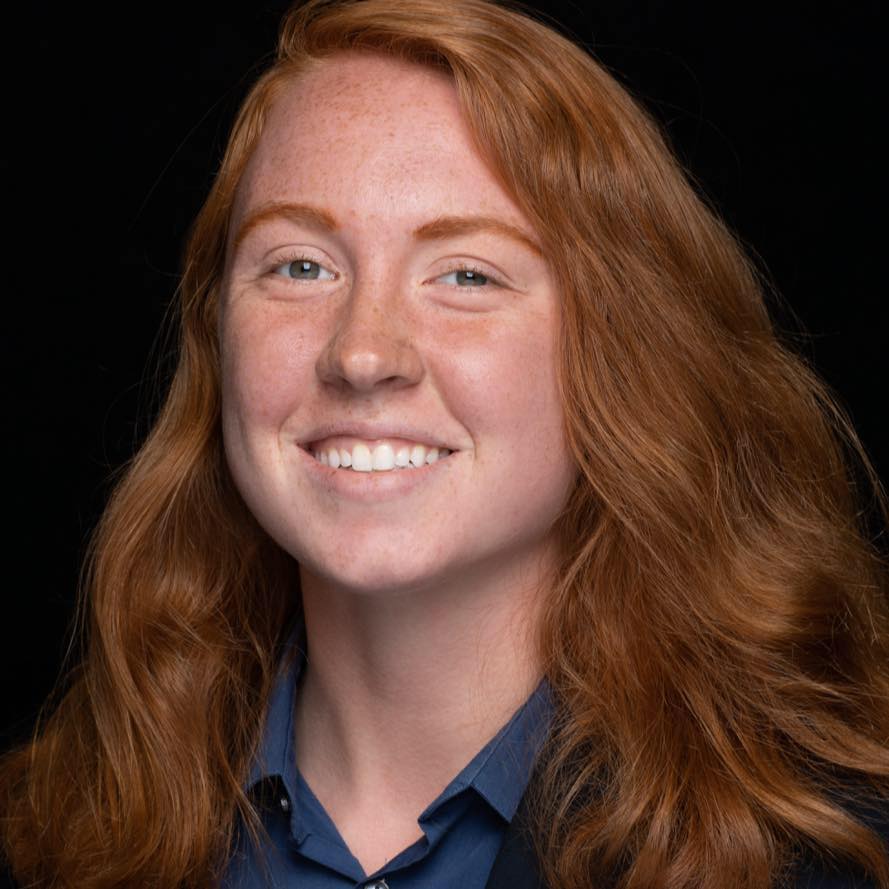My Michigan Ross Mentors Helped Me Embrace My LGBTQ+ Identity and Amplify My Voice

Whether a tour, orientation, or visiting one of our friends, when you first step onto the University of Michigan’s campus, it is immediately clear that Michigan is home to rich traditions. At first, learning about the multitude of traditions can be overwhelming, but with time they become a part of you.
The importance of tradition at Michigan Ross

The concept of tradition is especially important to the community at the Ross School of Business. When I think of tradition, I think of my family and the traditions that I grew up with. With this in mind, I’m not sure if there’s a better way to describe the culture at Michigan Ross other than one big, extended family. From our never-ending amount of group chats, to always being able to find a familiar face on campus, to always having a couch to sleep on in the biggest cities in the world, the Ross family may be one of the greatest gifts of my lifetime.
In my four years in business school, I found this family has come with amazing traditions, including the tradition of wanting to achieve more than before, and finding ways to balance our drive to strengthen our community with the existing demands of being a student.
However, some traditions are challenging. In some parts of the business world there are traditions that are exclusionary, harmful, and oppressive, especially towards members of the LGBTQ+ community. For me, I came into Michigan Ross terrified that no matter how hard I worked, I would never be able to achieve my goals because I’m a member of the LGBTQ+ community. But, I’ve found that Ross challenges these traditions, which should not exist in the first place. The community I found at Ross went above and beyond to embrace my identity and amplify my voice.
Why mentorship is my favorite Michigan Ross tradition
In the most challenging moments of my undergraduate business school experience, what shined the brightest is my favorite tradition at Michigan Ross: Mentorship. At the beginning of every semester, when the dust finally settles from recruiting, clubs assign new members to mentors. No matter a student’s identity, school, clubs, and recruiting can be daunting. Mentors serve as life rafts in the choppy waters of a competitive undergraduate experience, and eventually become lifelong friends.
Every time I faced challenges, my mentors helped to center me, reminding me that my sexuality is only a single part of my whole self, but to deny any single part of myself is to deny myself entirely. Because of this support, I’ve gotten the opportunity to work at a great firm where I can bring my whole self to work every day.
My Michigan Ross mentors helped me overcome my tough personal challenges
In fact, my community and mentors at Ross helped me to overcome my biggest professional challenges as a lesbian. I had many early semesters plagued by imposter syndrome. Was I talented? Was my identity checking a box for the companies interested in me? Would my career path be better off if I left part of myself behind?
I flew out to New York for a job interview my sophomore year. I had brought two suits with me for this interview — a suit that was mine, tailored to fit me perfectly, and a matching tie. The second suit was borrowed from a friend — a skirt, heels, and eyeliner (also borrowed) to sell the look.
These two suits came with their own sentencing. One, to be pinned as a lesbian and to deal with an outcome that may not represent my true intelligence and work ethic. The other, to be hired for someone I’m not.
As a 19-year-old, it’s already challenging enough to be thrown into recruiting without the complexities of being a minority. Naturally, I called my Ross mentors the night before the interview. I remember all of their reactions being the same. Obviously, I should wear my suit, the one tailored to not only my body, but to my personality and identity. The consensus was that if I’m not bringing my whole self to the interview, or to work, I’m denying the LGBTQ+ community a chance to be considered strong business leaders. That morning, standing in my suit, my friends and peers from Ross called to remind me that while few CEOs look like me, that doesn’t mean that I can’t be one.
Carrying on important Ross traditions to positively impact future students and the business world
During my four years at Michigan Ross, I strived to fill the shoes of my mentors and pass this on to the next generation of Ross students. Every semester, our community gets stronger because of this tradition, and to me it’s what sets Ross’ excellence apart from the rest.
I was also proud to be part of a student cohort motivated to leave our mark by establishing new traditions, ones we can be truly proud of. Over the past two years, our Ross community has become more accessible as it reflected on what it truly means to be inclusive. Hybrid approaches, combined with reflections on systemic obstacles that underrepresented communities face, have allowed Ross to make progress in its DEI efforts. Our curriculum has taken steps to integrate DEI into every discipline, instead of just standalone discussions. While there is much room for improvement, the groundwork has been laid for traditions to value and promote diversity, equity, and inclusion in a way that will eventually go above and beyond the business case for diversity.
Now, we are going to preserve one last tradition: The excellence that is Michigan Ross graduates and how we consistently use business to positively impact the world.
And for my favorite tradition, forever and always, Go Blue!










